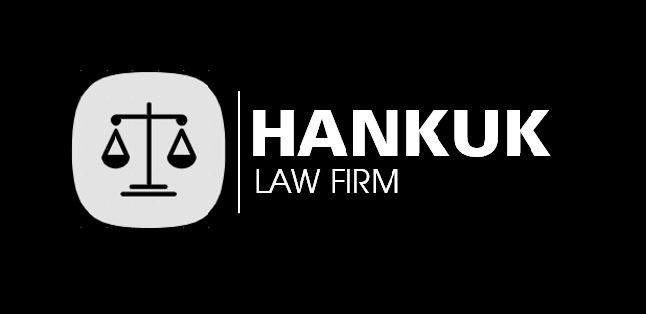DO FOREIGN WORKERS WORKING IN VIETNAM HAVE TO PAY PERSONAL INCOME TAX?

Contents
I. Legal basis
When working in Vietnam, foreign workers are entitled to a base salary similar to that of Vietnamese employees. The salary varies depending on the industry, job position, and experience of the worker.
1. Labor Code (2019)
The 2019 Labor Code regulates labor relations between employees and employers in Vietnam. It outlines the rights and obligations of both parties, including workers’ rights, such as the right to occupational safety, rest periods, and union membership, as well as the employer’s duty to provide a safe and lawful working environment. The Code also stipulates working hours, rest periods, wages, labor contracts, and regulations on child and female labor.
2. Circular 32/2013/TT-NHNN
Issued by the State Bank of Vietnam, Circular 32/2013/TT-NHNN governs foreign currency transactions and foreign exchange management. This circular details foreign currency transaction types for individuals and organizations, including buying, selling, and transferring foreign currency. Additionally, it outlines control and management measures to ensure currency market stability and specifies conditions for legal foreign currency transactions.
3. Decree 65/2013/ND-CP
Decree 65/2013/ND-CP covers administrative penalties in social insurance. It lists violations related to social insurance, such as failing to pay social insurance or neglecting obligations towards employees. The Decree specifies fines for each violation, including monetary penalties, temporary suspension of activities, or requiring remediation, and provides procedures for handling administrative violations in social insurance.
4. Personal Income Tax Law (2007)
The Personal Income Tax Law of 2007 regulates the tax obligations of individuals with income in Vietnam. This law defines taxable entities, including residents and non-residents, and specifies tax calculation methods, such as taxable income, tax exemptions, and deductions. It also outlines tax rates for various income types, including progressive rates for high-income individuals, and provides guidance on tax declaration, payment, and applicable tax refund rights.
II. Wage Regulations for Foreign Workers

Under Clause 2, Article 95 of the Labor Code, Vietnamese employers can pay foreign workers in either Vietnamese Dong or foreign currency. The method of payment, whether by bank transfer or cash, depends on the agreement between the two parties as specified in the labor contract.
According to Clause 14, Article 4 of Circular 32/2013/TT-NHNN, residents and non-residents can receive salary, bonuses, and allowances in foreign currency by bank transfer or cash as stipulated in the employment contract. Under Clause 2, Article 95 of the Labor Code, salaries for foreign employees can be recorded in foreign currency in the employment contract.
As such, companies in Vietnam may pay foreign employees in foreign currency through bank transfer or cash. Depending on the agreement between the two parties in the employment contract, the salary can be paid in either Vietnamese Dong or foreign currency.
III. Are Foreign Workers in Vietnam Subject to Personal Income Tax?

Under Article 2 of Decree 65/2013/ND-CP, personal income taxpayers include residents and non-residents with taxable income:
- For resident individuals, taxable income includes income generated both inside and outside of Vietnam, regardless of where it is paid.
- For non-resident individuals, taxable income includes income generated within Vietnam, regardless of where it is paid.
Therefore, foreign workers in Vietnam, whether resident or non-resident, are required to pay personal income tax. According to Article 6 of the 2007 Personal Income Tax Law, taxable income received in foreign currency must be converted to Vietnamese Dong at the interbank foreign exchange rate published by the State Bank of Vietnam at the time the income is earned.
IV. About Us, Hankuk Law Firm

■ Hankuk Law Firm – Introduction
The goal of the legal services provided by HANKUK LAW FIRM is to support businesses, investors, and people. Our organization employs skilled Korean lawyers, partners, and professionals to provide legal services to businesses related to corporations and litigation.
To support the startup process, our lawyers and staff provide a wide range of services, including business law consulting, tax and immigration law consulting, real estate services, business consulting, marketing and communications, human resources, product distribution, franchise options, etc. We provide expert advice on every aspect of your business needs.
To protect the legitimate rights and interests of our clients and achieve the best results, we provide legal advice and participate in civil lawsuits related to business, labor, marriage, family, and inheritance.
■ Contact us now

For reliable and effective legal advice, please contact HANKUK LAW FIRM now. We are committed to providing you with the best possible answers and our team of experienced lawyers has extensive knowledge in many legal fields. We are always here to provide the most competent and dedicated support, whether you are dealing with contractual issues, commercial disputes or need guidance on foreign investment. HANKUK LAW FIRM is honored to have assisted hundreds of domestic and international clients in skillfully resolving complex legal issues as their trusted legal partner. Do not let legal issues hinder your success. Let us accompany you towards legal achievement and comfort. For prompt guidance and support to ensure your rights are always maintained at the highest standards, contact HANKUK LAW FIRM now.
■ Contact Hankuk Law Firm:
| Website: http://hankuklawfirm.com/en/
FB: https://www.facebook.com/hankuk.lawfirm Tiktok: https://www.tiktok.com/@hankuklawfirm Youtube: https://www.youtube.com/@hankuklawfirm6375 Email: info@hankuklawfirm.com SĐT: 0942.339.063 |
 |

